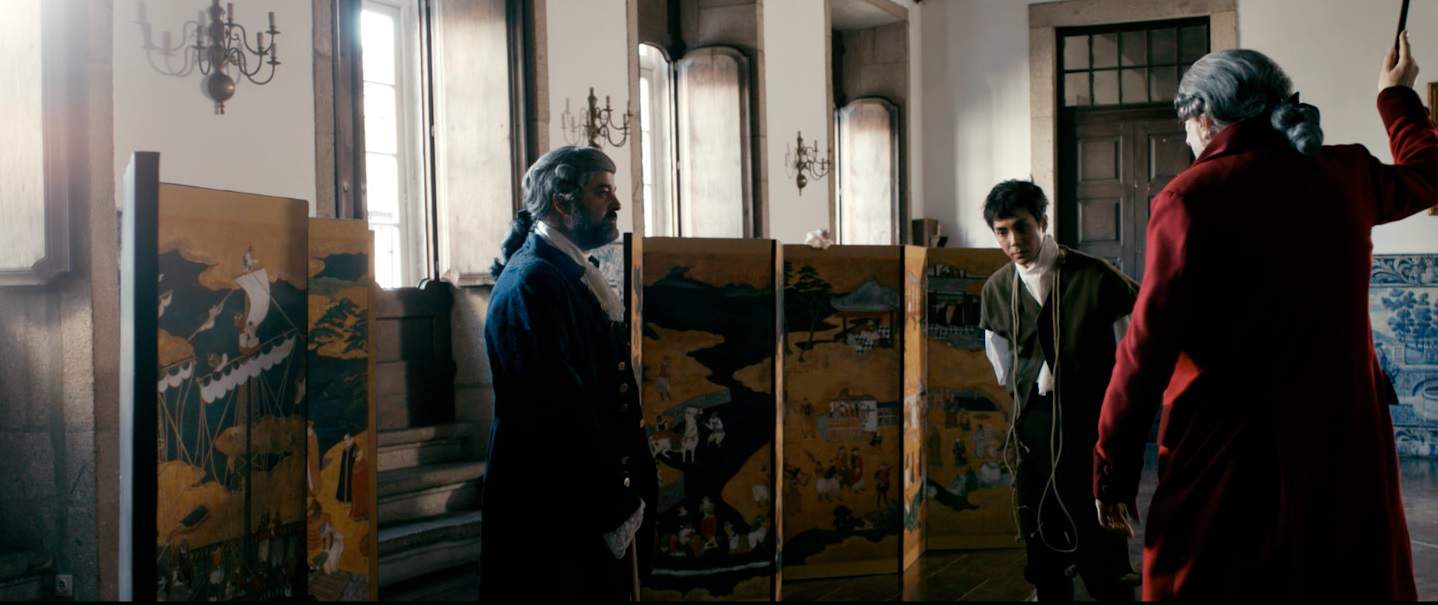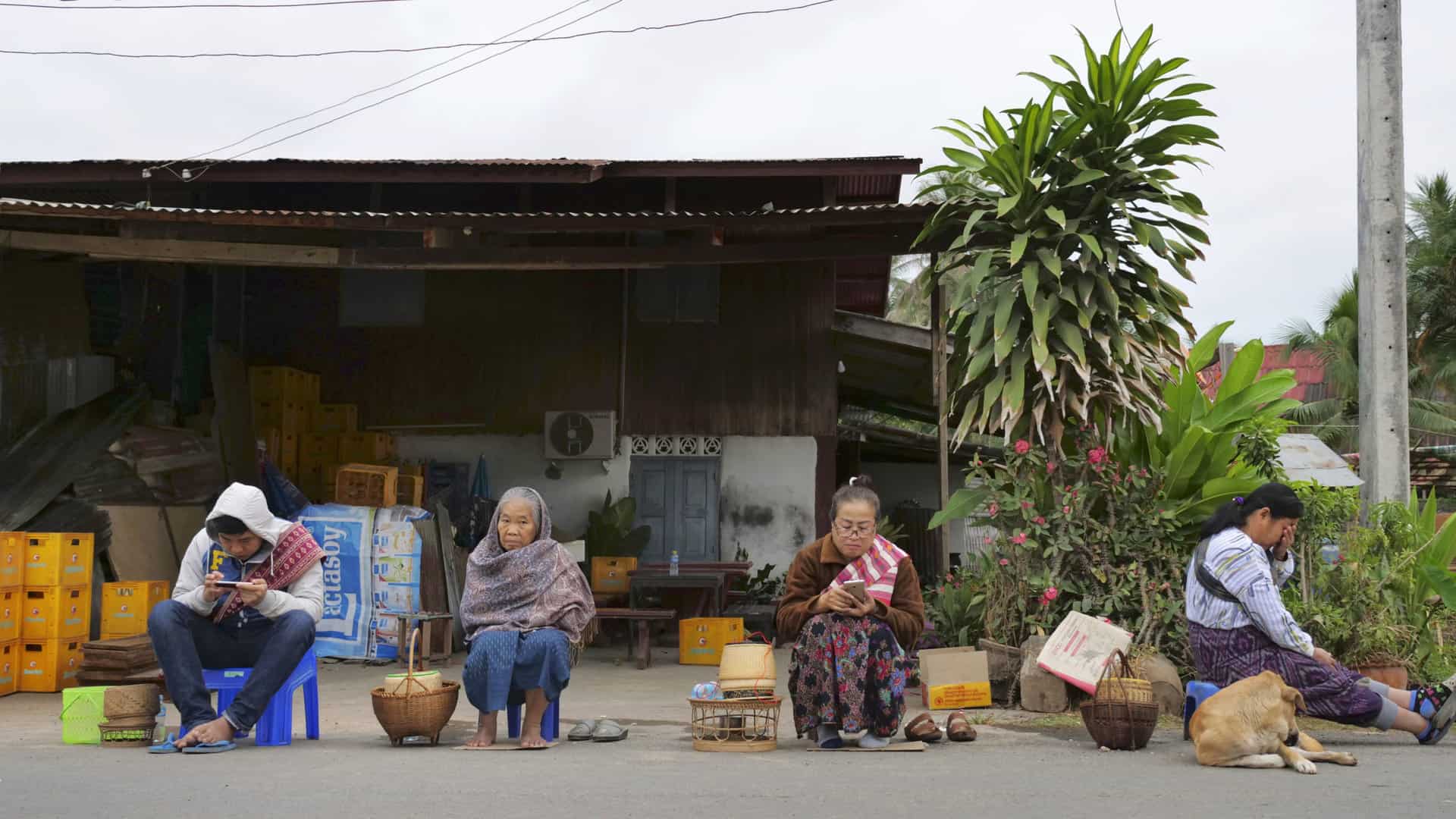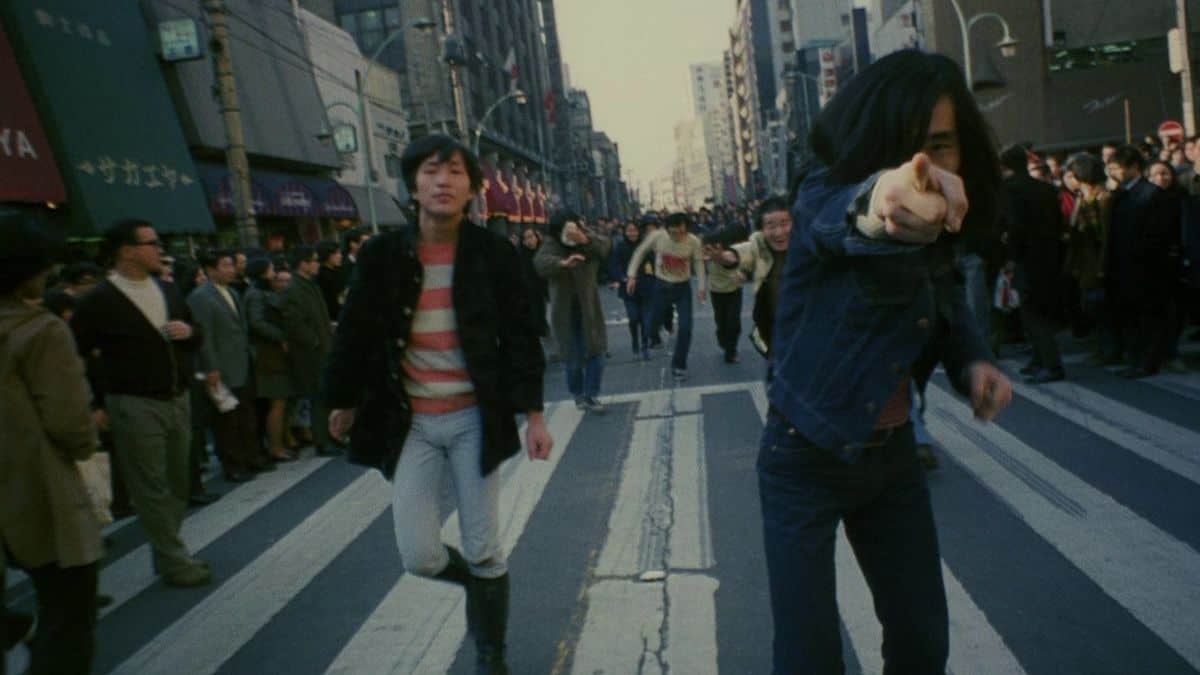“Lovers on Borders” is the first-ever co-production among Japan, Portugal and USA, and its 132-minute version has already screened in Portugal, Japan and Sao Paulo Film Festival in 2018. Atsushi Funahashi recently created an international version trimmed down to 123 minutes, which deals with a number of sociopolitical issues through a story of revenge that takes place in two different periods.
The first axis takes place in Japan in 2021, just after the Olympics and ten years after the after the Fukushima catastrophe. Shiro is a Brazilian-Japanese musician who works in a factory in Japan and dreams of opening his own shop of selling guitars. Along with his girlfriend, Mariana, which he met while in Portugal, they also perform fado songs, live in a club. Shiro is pretty close to securing a loan from a bank to open his shop, right around the time when the financial issues Japan faced after the disaster result in many layoffs, particularly of immigrant workers. Eventually, the tactic reaches his factory, where Soji, a Japanese executive tasked to deal with the issue, asks for someone to volunteer to be fired. Shiro, thinking his loan is granted, comes forward but soon realizes how big his mistake was. As he his world shutters, despair takes over. Sometime later, his girlfriend stumbles upon Soji, and a plan of revenge comes to her mind.
The second axis takes place three centuries earlier, in 18th century Portugal, when the great Earthquake of 1755 of Lisbon has left the country in shambles. Aristocrat Gaspar de Carlvalho returns to his house in the city after trips in Asia, bringing with him a number of slaves, including two Japanese ones, Shiro and Shuji, and a grudge for people of the country, who burned his missionary ancestor to death. Another Mariana, who has lost everything in the earthquake, is forced to work in Gaspar's mansion as a maid, becoming witness to his constant cruelty against his slaves and particularly upon Shuji. Even in that setting, however, love blossoms between the two, at least until tragedy hits once more. This Mariana also constructs a plan for revenge.
Atsushi Funahashi directs a film that makes a number of rather eloquent comments, particularly on the way humanity seems to repeat the same mistakes through the years, thus questioning the whole evolution of the kind. The fact that despite the radically different setting, both in terms of location and time, the results of a major catastrophe are the same, as the gap between the rich and the poor, the haves and the have-nots, becomes much wider, highlights this comment in the pointiest fashion. The same applies to that the prejudice and the extremely harsh behaviors follow the exactly opposite paths (Japanese towards Portuguese in 2021 and vice versa in 1755) intensifying the comment even more, although Funahashi does not neglect to show how harsher the circumstances were during the 18th century.
That both axes also include stories of love, even in these rather extreme circumstances, and subsequent stories of revenge, also presents a comment about human nature, regarding sentiments and thoughts, both benevolent and malevolent, that actually remain the same through the centuries. That in both axes, Funahashi tries to show that even the people who appear as villains can also be suffering or being victims of bigger powers, is another comment on human nature, but at the same time somewhat tones down the impact of his comments.

The actual love/revenge stories are presented in non-linear fashion, intermingling the past and the “present”, in an approach that works quite well for the film, particularly since the work done in the editing is rather good. At the same time, though, the narrative turns a bit self-indulgent when the focus is on human sentiments, with the music and the many idyllic settings being aesthetically appealing but also detracting from the impact the comments could have. It seems that Funahashi wanted to tone down the ugliness of reality through moments of beauty, and although he succeeded visually, particularly since Koichi Furuya's cinematography is impressive, occasionally he seems to lose his sense of measure in that regard. That the film is 123 minutes long also moves towards this direction, since a number of scenes do not seem to further the comments or the story, but just to add to its aesthetics.
The acting, on the other hand, is quite good. Ana Moreira as Mariana shines through both arcs, both as a victim and a femme fatale, with her evident charisma permeating the whole movie. Yuta Nakano is also quite good in a rather measured performance, with the same applying to Tasuku Emoto, who portrays both the victim and the perpetrator with the same artfulness. Valdemar Santos as Gaspar's main henchman is also great, with him stealing the show with his harsh attitude that derives from an occasionally unwilling sense of duty.
“Lovers on Borders” has its faults and some additional trimming would definitely benefit the movie, but it is definitely beautiful, well-shot, and quite meaningful through its well-presented comments.















